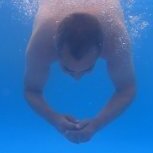Events
ALL
DAY
-

11/13/25 11/19/25
World Antibiotic Awareness WeekThis event begins 11/13/15 and repeats every year forever
[WHO]
Antimicrobial resistance (AMR) occurs when bacteria, viruses, fungi and parasites change over time and no longer respond to medicines, making infections harder to treat and increasing the risk of disease spread, severe illness and death. As a result of drug resistance, antibiotics and other antimicrobial medicines become ineffective and infections become increasingly difficult or impossible to treat.
A global action plan to tackle the growing problem of resistance to antibiotics and other antimicrobial medicines was endorsed at the Sixty-eighth World Health Assembly in May 2015. One of the key objectives of the plan is to improve awareness and understanding of AMR through effective communication, education and training.
World Antimicrobial Awareness Week (WAAW) is a global campaign that is celebrated annually to improve awareness and understanding of AMR and encourage best practices among the public, One Health stakeholders and policymakers, who all play a critical role in reducing the further emergence and spread of AMR.
-

11/17/25
World Philosophy DayThis event begins 11/17/05 and repeats every year forever
(UNESCO 33 C/Resolution 37)
By celebrating World Philosophy Day each year, on the third Thursday of November, UNESCO underlines the enduring value of philosophy for the development of human thought, for each culture and for each individual.
Philosophy is an inspiring discipline as well as an everyday practice that can transform societies. By enabling us to discover the diversity of the intellectual currents in the world, philosophy stimulates intercultural dialogue. By awakening minds to the exercise of thinking and the reasoned confrontation of opinions, philosophy helps to build a more tolerant, more respectful society. It thus helps to understand and respond to major contemporary challenges by creating the intellectual conditions for change.
On this Day of collective exercise in free, reasoned and informed thinking on the major challenges of our time, all of UNESCO’s partners are encouraged to organize various types of activities - philosophical dialogues, debates, conferences, workshops, cultural events and presentations around the general theme of the Day, with the participation of philosophers and scientists from all branches of natural and social sciences, educators, teachers, students, press journalists and other mass media representatives, and the general public.

